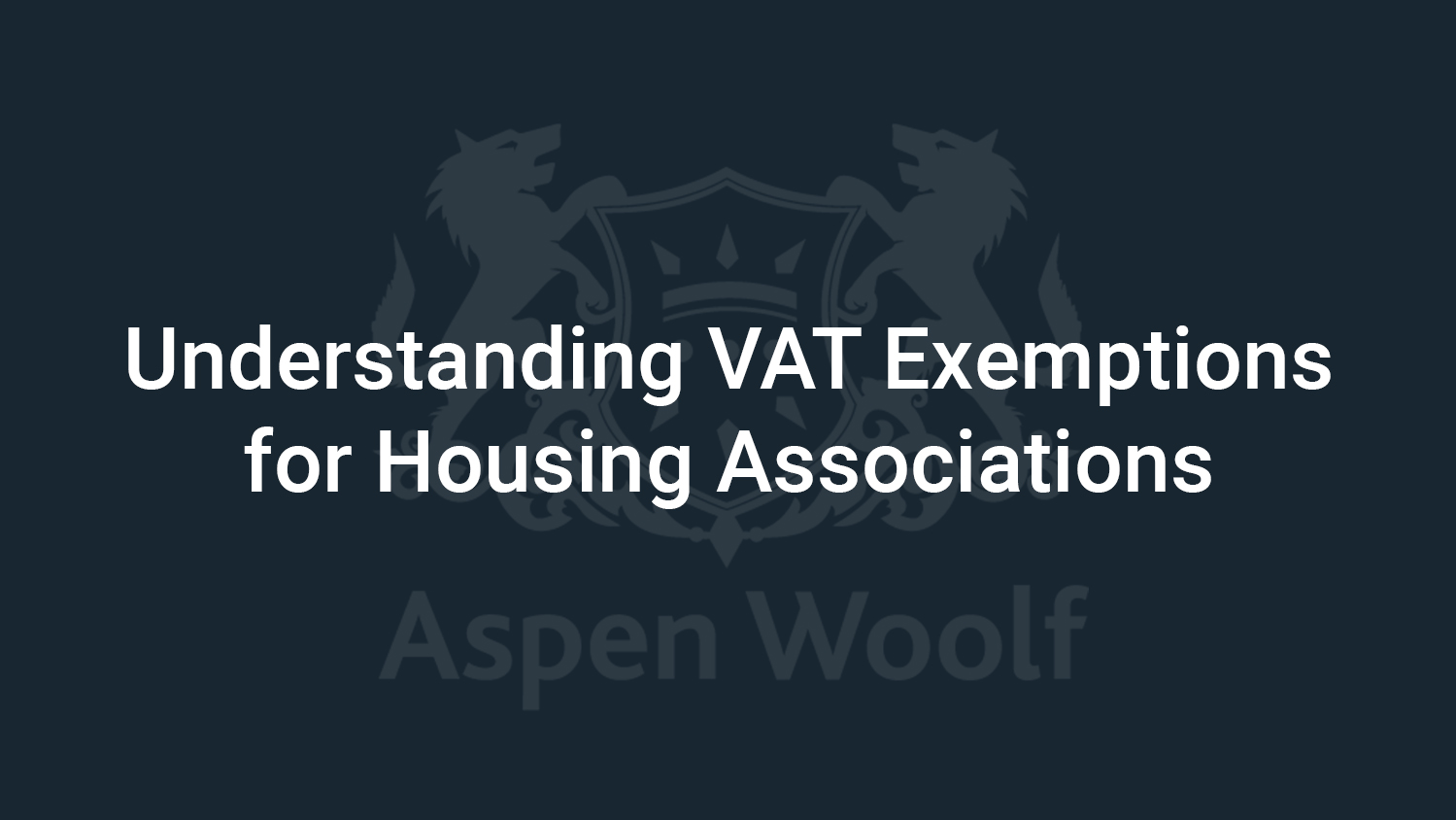Understanding VAT Exemptions for Housing Associations

VAT regulations can be complicated, and certain sectors have more to deal with than others. Housing associations in particular face many specific rules and regulations that they must follow if they want to meet their VAT obligations and maximise their position. Most housing associations have a strong sense of their overall responsibilities in terms of VAT regulations, but they also tend to be cautious for fear of potential penalties associated with non-compliance.
Because of the complicated nature of the VAT rules for housing associations, this frequently means that they are in a payment position with regard to VAT. In turn, this takes away funds that could otherwise be used for key services. Understanding the rules surrounding VAT and how they apply to housing associations is about more than your legal obligations – it also means recognising the various exemptions and allowances that apply in your circumstances, and that could help you save money while remaining compliant with the law.
Here, the tax experts at The VAT People discuss the VAT exemptions applicable to housing associations, and outline some of the common mistakes and misconceptions that these organisations are liable to make.
General VAT rules for housing organisations
The residential rents that make up the core income of housing associations are exempt from VAT and, as a result, some such businesses will not need to register for VAT. However, many associations have other forms of income that may be subject to VAT which may give rise to a liability to register. Examples include management fees and supplies and the sale of newly constructed homes.
All of this means that social housing providers are considered partially exempt from VAT. The consequence of this is that they are significantly restricted in how much of their VAT they can recover, as input tax is only recoverable to the extent it relates to an onward taxable supply. However, by approaching these matters strategically and learning about the exemptions, relief and recovery options available, housing associations can minimise the burden imposed by their VAT liabilities.
How can housing associations maximise their VAT position?
Housing associations can reduce the amount of irrecoverable VAT they incur in a number of ways, depending largely on the types of activities the business wants to undertake. The reduced rate of VAT usually applies if you are converting non-residential properties into new homes, for example, and it is sometimes possible to buy opted land without paying VAT where the land is being purchased for the purpose of developing residential property, which can be a more cost-effective way to build new dwellings. Qualifying services relating to the construction of dwellings can also be subject to the zero-rate of VAT.
If a home has been empty for two years or more, housing associations may be able to undertake certain renovations, chargeable at the 5% VAT rate. While many of the above examples are governed by the specific circumstances of a situation, knowing that they exist can help you to determine whether or not they are available to you. Alternatively, working with expert VAT consultants can help you to prepare for tax liability and plan a project in the most tax-efficient way possible right from the start of the process.
Specific reliefs apply to certain purchases made by charitable organisations, such as in relation to advertising services. Charities are subject to a 0% VAT rate on all advertising, which includes everything from printing leaflets and brochures to placing an advert in a newspaper or other form of media. This can result in significant savings that many housing organisations are unaware of, and you should check whether or not this applies to your situation at the earliest opportunity to start taking advantage of this opportunity.
The importance of tax planning
Failing to maximise VAT recovery is one of the most common errors made by housing associations. This is frustrating because the savings can be significant, especially when it comes to large-scale projects like property refurbishment or remodelling projects. The VAT liabilities of sundries and smaller income streams also need to be taken into account, as this can make a big difference.
All housing associations should work with VAT consultants and specialists to organise their businesses and their future plans according to tax-efficient structures. For example, many organisations can negotiate special partial exemption methods with HMRC, but they are unaware of this possibility.
VAT regulations are complicated to understand and can be subject to change, but the penalties for non-compliance are significant. Housing associations are often caught out, either with mistakes in compliance or failures to take proper advantage of the savings that are available. By working closely with VAT experts and planning around the tax implications of your decisions, you can maximise your savings and ensure you only pay as much tax as you owe.

